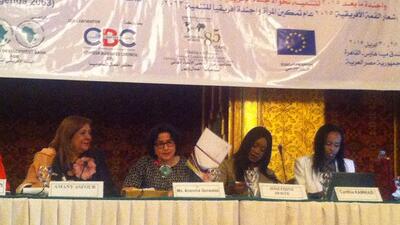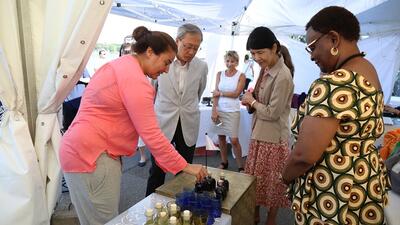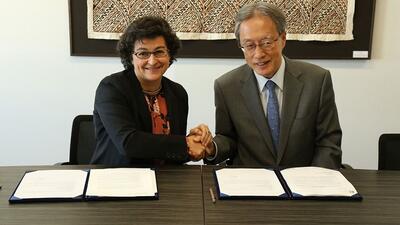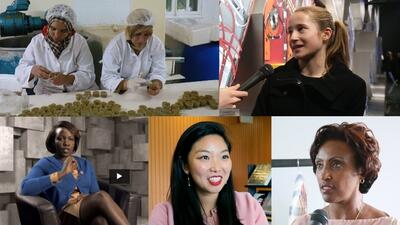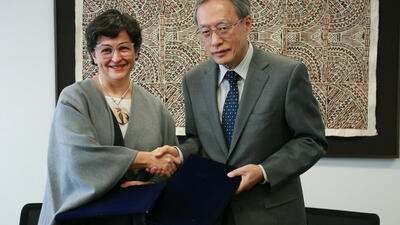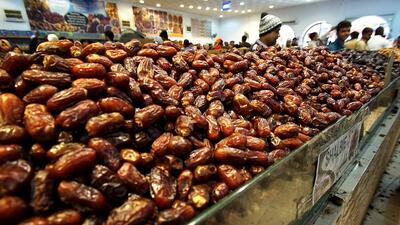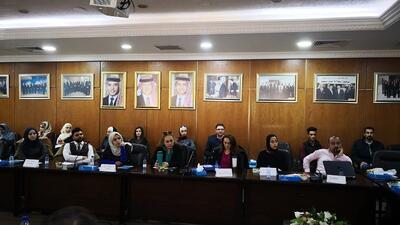Syrian designer taps online markets through pop-up souk in Geneva
To sell more goods online, sell them in person.
That’s what entrepreneur Rania Kinge is doing to expand her online market, selling handmade products ranging from jewellery, bags and scarves to soaps, teas and chocolates. The goods are handcrafted by displaced women in Damascus who have received training from Kinge. Over time, she has trained about 100 women.
‘I donate my know-how to teach them how to do handwork so they can slowly get out of the shelters and live as normal Syrian citizens,’ Kinge said, adding that it’s important for her to give local women a chance at making a decent living in their own country. ‘Syria’s local economy is based on crafts. I thought I would tap into this to reposition Syria on the international scene.’
She learned during her travels that local economies are often based on crafts. If there is a break in the chain in a family, the knowledge disappears. ‘To sustain culture and local economy we need to sustain crafts,’ Kinge added.
‘These are high-quality products with designs that are comparable to those of big fashion brands,’ said Simone Cipriani, head of the ITC Ethical Fashion Initiative.
Where virtual and physical meet
The e-commerce souk, or ‘eComSouk’, was displayed at the United Nations in Geneva on 11 February and continues at the International Trade Centre (ITC) on 12 February.
The pop-up souk, organized by ITC, gives these displaced women in Damascus more visibility for their online products and a chance to promote their products directly to end consumers in target markets. Products are shipped internationally through Beirut and the infrastructure for online transactions is based in Geneva.
Power of social media
Social media is an integral part of the business. The business has generated more than 12,000 likes on Facebook and testimonials from buyers from the region and around the world.
‘We can relate this to technology,’ said Kinge. ‘Because I took a single photo, and put it on the Internet, boom! We had about 15,000 orders.’
‘It’s incredibly important to focus on technology for women in business,’ said Vanessa Erogbogbo, head of the ITC Women and Trade Programme. ‘Social media doesn’t care about how small you are. It cares about how interesting or how valuable your idea is. Business is increasingly interconnected.’
‘Thanks to ITC, I am equipped with more courage and hope that we can change people in a nice way,’ said Kinge. ‘We have to make projects that are adapted to people and their skills.’
This is the second ITC pop-up souk, following a pre-Christmas souk by the Made in Morocco cooperative in December 2015. Additional souks are planned in 2016.
Expanding markets with e-commerce giants
‘We have technology to help these businesses get easier access to major online marketplaces, like eBay, Amazon, Etsy and other markets,’ said Mohamed Es Fih, ITC e-solutions adviser. ‘We unlock barriers to the tripod of problems: visibility, payments and logistics. EBay, for example, has been attending our eComSouks in Geneva and developing countries to explore opportunities for collaboration.’
ITC has a partnership with DHL, the global logistics company, to address challenges to logistics and customs regulations faced by small and medium-sized enterprises looking to export.




